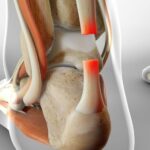Orthopaedic specialists play a crucial role in geriatric care. As we age, our bones and joints need extra attention. Routine care by these experts can lead to better mobility and less pain. For instance, someone experiencing neck pain nashville can find relief and regain function through proper treatment. Orthopaedic care helps with arthritis, fractures, and joint replacement, making life more comfortable for older adults.
Understanding Geriatric Orthopaedics
Geriatric orthopaedics involves treating musculoskeletal issues in older adults. With age, bones become brittle, and joints can stiffen. These changes make older adults more prone to injuries and chronic pain. Specialists focus on improving the quality of life through various treatments. This includes physical therapy, medication, and sometimes surgery.
Common Conditions in Geriatric Orthopaedics
Orthopaedic specialists address several conditions common in older adults. Here are three of the most frequent:
- Arthritis: A condition causing joint pain and stiffness.
- Osteoporosis: A disease that weakens bones, leading to fractures.
- Spinal Issues: Problems with the spine that can cause back and neck pain.
Each of these conditions requires specific treatment approaches. For example, arthritis care might include anti-inflammatory medication and physical therapy. Osteoporosis treatment focuses on strengthening bones, while spinal issues may need targeted exercises.
Benefits of Orthopaedic Care
Receiving care from an orthopaedic specialist offers several benefits:
- Improved Mobility: Treatments help maintain or regain movement.
- Pain Relief: Proper care reduces chronic pain.
- Injury Prevention: Specialists provide guidance to prevent falls and injuries.
These benefits directly impact daily life, allowing older adults to stay active and independent. According to the CDC, maintaining mobility is crucial for aging well.
Role of Surgery in Geriatric Orthopaedics
Sometimes, surgery is necessary for older patients. Joint replacement surgeries, such as hip or knee replacements, are common. These procedures can significantly improve the quality of life. However, surgery is not always the first option. Specialists weigh the risks and benefits before recommending surgical solutions.

Non-Surgical Treatments
Non-surgical treatments are often the first line of defense. They include:
- Physical Therapy: Exercises and stretches to improve strength and flexibility.
- Medications: Drugs to manage pain and inflammation.
- Assistive Devices: Tools like canes or walkers to aid movement.
These approaches focus on managing symptoms and improving function without invasive procedures. The National Institute on Aging provides resources on managing osteoporosis with non-surgical methods.
Data on Geriatric Orthopaedic Care
Understanding the impact of orthopaedic care is essential. Here’s a comparison of outcomes with and without specialist care:
| Outcome | With Specialist Care | Without Specialist Care |
|---|---|---|
| Mobility Improvement | 80% | 50% |
| Pain Reduction | 75% | 45% |
| Injury Prevention | 85% | 60% |
These figures highlight the effectiveness of specialized care for older adults. They not only improve the quality of life but also promote independence.
Conclusion
Orthopaedic specialists are vital in managing the health of older adults. They offer a range of treatments that can significantly enhance quality of life. From managing pain to preventing injuries, their expertise is invaluable. By seeking specialized care, older adults can enjoy more active and fulfilling lives.









